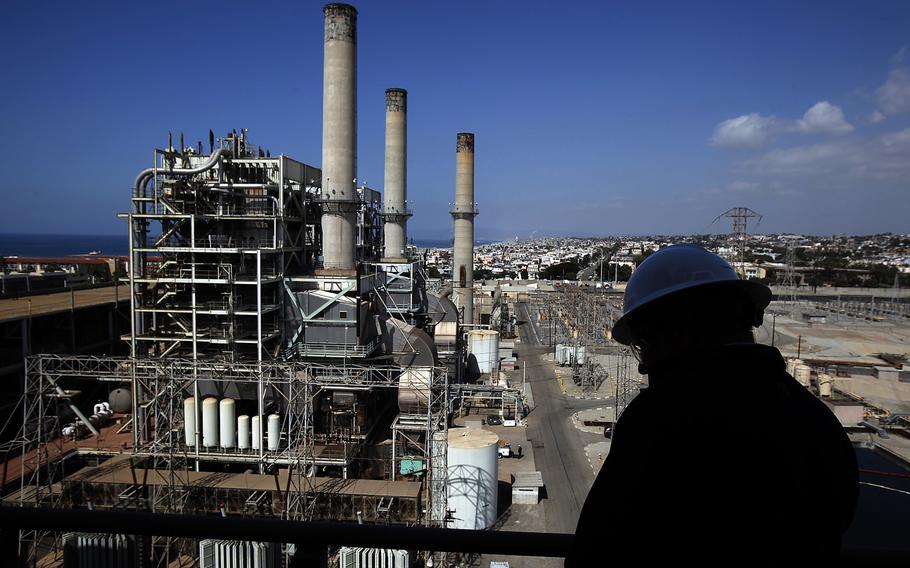
The Redondo Beach, Calif., gas plant is shown. One of the biggest threats to America’s emergence as a global energy provider is a spate of lawsuits in the United States alleging that America’s energy providers should be financially liable for global climate change-related impacts around the country. (Rick Loomis )
Russia’s unprovoked offensive into Ukraine has pressed Western democracies to fundamentally reevaluate where they source energy. As part of a long-term strategy to gain leverage over the west, Vladimir Putin attempted to defang central and western Europe by flooding it with cheap crude oil and natural gas. He has used this energy dependance as leverage to threaten Ukraine’s allies and force them to stay on the sidelines.
Since Europe relies so heavily on Russia to power its economy, it’s understandable to see why the Kremlin believed they could weaponize the flow of energy to their advantage. Now, with energy prices soaring due to supply scarcity and global instability, this crisis has made clear that Western countries like the U.S. can no longer afford to be dependent on hostile, foreign powers, but instead, should prioritize domestic energy production.
Putin’s gambit specifically underscores the strategic importance of U.S. energy production as means to supporting both our own national security and the security of our allies. Even in the midst of headwinds from Washington, our domestic energy markets remain vibrant: We remain the world’s biggest producer of oil and natural gas, and are the top exporter of liquefied natural gas.
As a result of this energy renaissance, America is playing a critical role in setting the example for our European allies and encouraging them to wean themselves off Russian gas. Now, our country is exporting record levels of LNG across the Atlantic Ocean, which, as the Energy Information Administration notes, during the first four months of 2022, we “exported 74 percent of its LNG to Europe, compared with an annual average of 34 percent last year.”
American energy producers have quickly stepped up to meet the demands of the moment. They have quickly showed both friends and adversaries that the U.S. isn’t just a premier military superpower, but a global energy superpower as well.
One of the biggest threats to America’s emergence as a global energy provider is a spate of lawsuits in the United States alleging that America’s energy providers should be financially liable for global climate change-related impacts around the country. In the last five years, more than two dozen state, county and municipal governments have filed these lawsuits — largely for political reasons. It’s easy to beat up on the oil industry. But the claims are meritless.
Worse, these lawsuits only target American energy companies and those of our allies — not America’s adversaries, including state-owned companies like Russia’s Gazprom, Saudi Arabia’s Aramco and Venezuela’s Petróleos de Venezuela. As economist Gary Hufbauer wrote recently for International Business Times, “the whole world, certainly including foreign energy companies, has contributed to climate change. But these leaders want U.S. and European energy companies — not foreign state-owned energy producers — to pay.”
As the Manufacturers’ Accountability Project revealed in its Beyond the Courtroom report, this litigation is an attempt to undermine American energy. Former New York City Mayor Bill de Blasio, one of the first to bring such a lawsuit, said they want to use the lawsuits to “bring the death knell” to this industry.
But there should be no misunderstanding that threatening American energy production makes us less secure. It would cause us and our allies to import more oil and gas from hostile, foreign countries — a scenario that holds little logic given Russia’s aggressive actions in Europe. Their oil and gas are also more carbon intensive, meaning that relying on foreign energy will also make climate change worse.
As two former chairmen of the Joint Chiefs of Staff — retired Air Force Gen. Richard B. Myers and retired Navy Adm. Michael Mullen — said in an amicus brief in one of these cases, “energy companies have been — and continue to be — critical to national security, military preparedness, and combat missions.” Yet, despite the strategic imperative of a robust domestic energy industry, the Biden administration continues to outsource these capabilities abroad. While he stymies projects here at home, he has made it a priority to go to OPEC and the Saudis, as he has done, to appeal to them to increase oil output.
To be sure, climate change is a serious problem, and it needs serious, data-driven solutions. It can be resolved only by Americans and our allies working together to pass laws that preserve both our energy security as well as our environment for generations to come. By suing our own energy sector, Americans would have to pay double or triple what we spend now to power our homes, cars and workplaces further harming our economy and independence.
With these lawsuits, local government officials will weaken America’s national security and drive prices higher during this energy crisis. The courts should not be a party to sacrificing our country’s economy, national security or the environment and should toss out these shortsighted lawsuits. It is up to our political leaders to offer real solutions instead of blaming others for a failing national energy strategy.
Aaron Pluto is a retired military officer, Army aviator and adviser on the former Soviet Union who has served as strategic consultant to top-level military leaders and diplomats domestically and overseas.